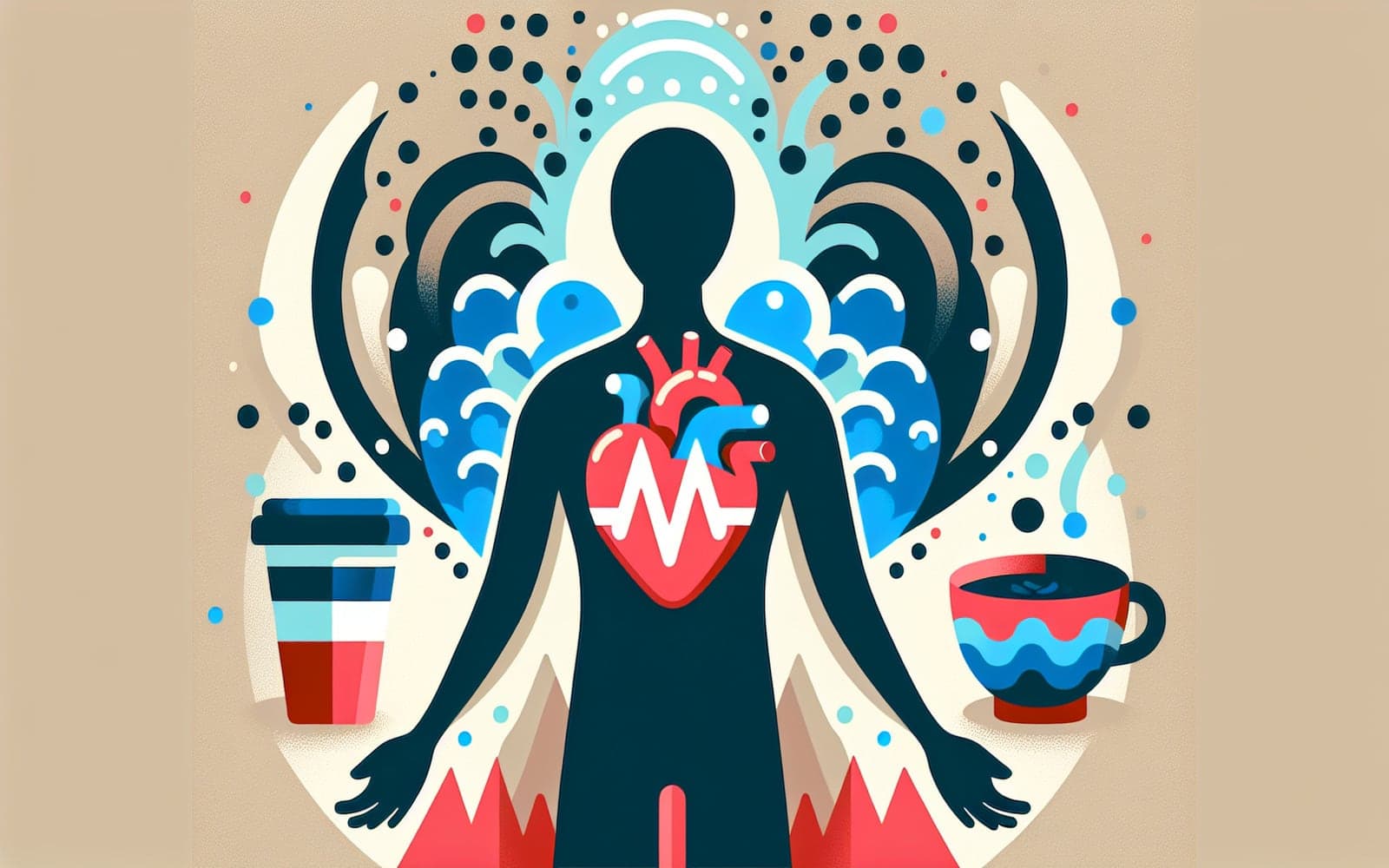Are Heart Palpitations Linked to Your Coffee Habit?
Published: Nov 02, 2023
Many coffee lovers experience heart palpitations, raising the question: Is caffeine to blame? Discover the connection between caffeine and this common symptom.
Contents
Understanding Heart Palpitations
Heart palpitations are sensations of a fast-beating or pounding heart, often felt during stress or after caffeine consumption. While not always a sign of a serious condition, frequent palpitations should be discussed with a healthcare provider. Understanding their triggers can help manage this symptom effectively.
Caffeine's Role in Palpitations
Caffeine can increase heart rate and may trigger palpitations, especially in sensitive individuals. Most people can tolerate moderate amounts without issues, but those experiencing palpitations might need to monitor or reduce their caffeine intake. Energy drinks, with their high caffeine content, should be consumed cautiously.

Managing Palpitations
If caffeine contributes to palpitations, reducing its intake might help. Switching to decaf or limiting energy drinks are practical strategies. Keeping a journal of caffeine intake and symptoms can assist in identifying patterns and making informed decisions.
Frequently Asked Questions
Yes, caffeine can trigger palpitations, especially in sensitive individuals.
Reducing caffeine might help manage palpitations.
Energy drinks should be consumed cautiously due to high caffeine content.
Keeping a journal of caffeine intake and symptoms can help track palpitations.
Key Takeaways
While caffeine can cause palpitations, understanding and managing your intake can help control this symptom.
Experiencing palpitations and wondering if caffeine is the cause? Consult Doctronic for tailored advice!Related Articles
References
Marcus GM, Modrow MF, Schmid CH, et al. Individualized Studies of Triggers of Paroxysmal Atrial Fibrillation: The I-STOP-AFib Randomized Clinical Trial. JAMA Cardiol 2022; 7:167.
Chelsky LB, Cutler JE, Griffith K, et al. Caffeine and ventricular arrhythmias. An electrophysiological approach. JAMA 1990; 264:2236.
Always discuss health information with your healthcare provider.

